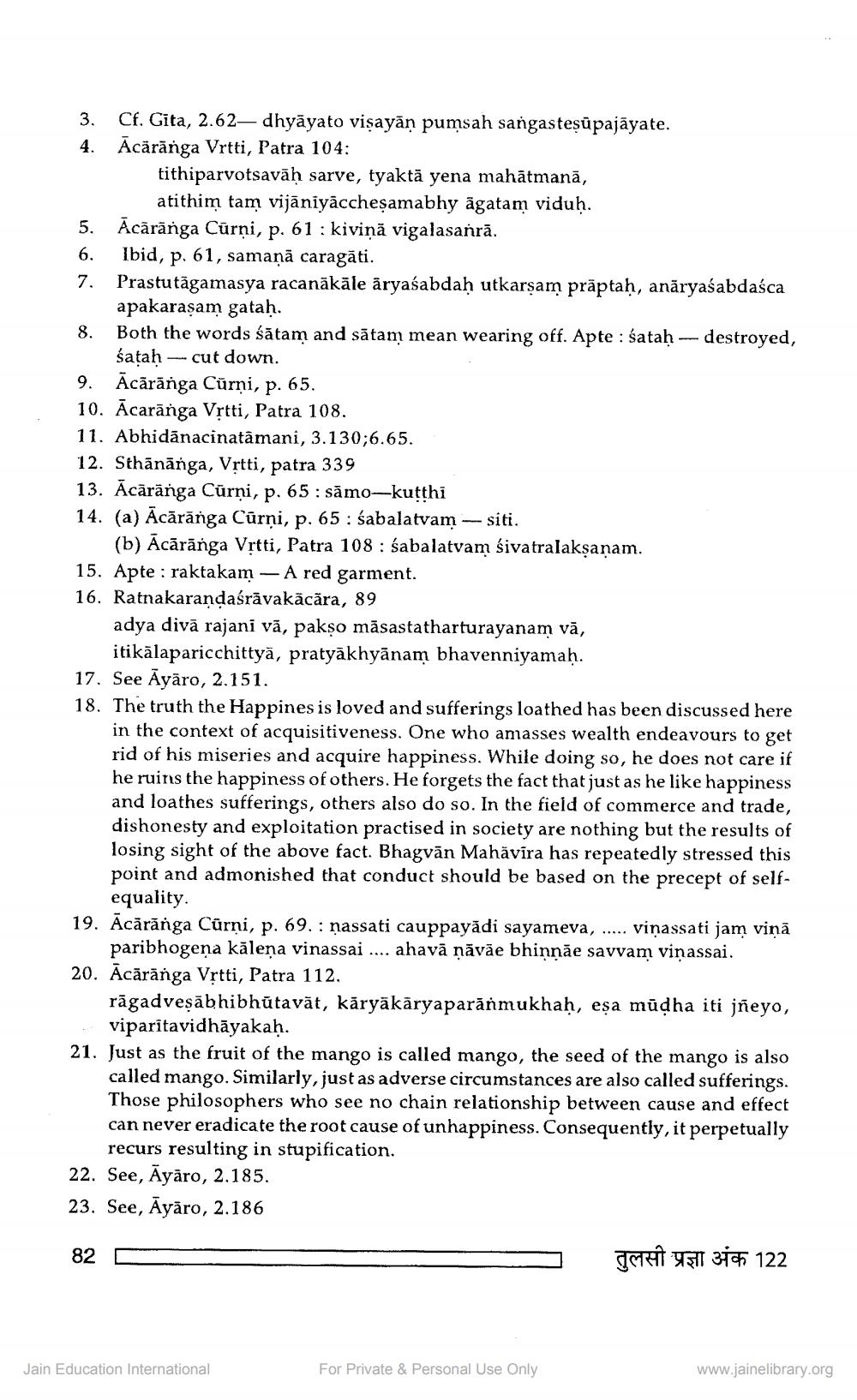________________
3. Cf. Gita, 2.62— dhyāyato visayān pumsah sangasteşūpajāyate. 4. Ācārānga Vrtti, Patra 104:
tithiparvotsavāh sarve, tyaktā yena mahātmanā,
atithim tam vijānīyācchesamabhy ägatam viduḥ. 5. Ācārānga Cūrni, p. 61: kivinä vigalasanrā. 6. Ibid, p. 61, samaņā caragāti. 7. Prastutāgamasya racanākāle āryaśabdah utkarsam prāptah, anāryaśabdasca
apakarasam gataḥ. 8. Both the words śātam and sātam mean wearing off. Apte : sataḥ --- destroyed,
śataḥ - cut down. 9. Ācārānga Curņi, p. 65. 10. Ācarānga Vrtti, Patra 108. 11. Abhidānacinatamani, 3.130;6.65. 12. Sthānānga, Vrtti, patra 339 13. Ācāränga Cūrni, p. 65:sāmo-kutthi 14. (a) Ācārānga Cūrņi, p. 65: śabalatvam -- siti.
(b) Ācārānga Vrtti, Patra 108 : śabalatvam śivatralakṣaṇam. 15. Apte: raktakam- A red garment. 16. Ratnakarandaśrāvakācāra, 89
adya divā rajani vă, pakso māsastatharturayanam vā,
itikālaparicchittyā, pratyākhyānam bhavenniyamah. 17. See Āyāro, 2.151. 18. The truth the Happines is loved and sufferings loathed has been discussed here
in the context of acquisitiveness. One who amasses wealth endeavours to get rid of his miseries and acquire happiness. While doing so, he does not care if he ruins the happiness of others. He forgets the fact that just as he like happiness and loathes sufferings, others also do so. In the field of commerce and trade, dishonesty and exploitation practised in society are nothing but the results of losing sight of the above fact. Bhagvān Mahăvira has repeatedly stressed this point and admonished that conduct should be based on the precept of self
equality. 19. Ācārănga Curņi, p. 69. : nassati cauppayādi sayameva, ..... viņassati jam viņā
paribhogena kälena vinassai .... ahavā nāvāe bhinnäe savvam vinassai. 20. Ācārānga Vrtti, Patra 112.
rāgadvesābhibhūtavāt, kāryākāryaparāńmukhah, esa müdha iti jñeyo,
viparitavidhāyakaḥ. 21. Just as the fruit of the mango is called mango, the seed of the mango is also
called mango. Similarly, just as adverse circumstances are also called sufferings. Those philosophers who see no chain relationship between cause and effect can never eradicate the root cause of unhappiness. Consequently, it perpetually
recurs resulting in stupification. 22. See, Āyāro, 2.185. 23. See, Āyāro, 2.186
82 C
THAT YFIT STC 122
Jain Education International
For Private & Personal Use Only
www.jainelibrary.org




